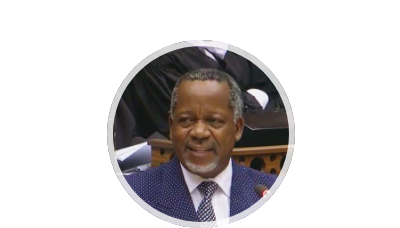“The ACDP is on record as expressing our deep concerns about the Cannabis for Private Purpose Bill which was drafted following the constitutional court decision in Minister of Justice and Constitutional Development v Prince (2018) ZACC 30.
These concerns were repeated during public hearings and many meetings of the Justice and Correctional Services Portfolio Committee.
We are aware of the devastating impact that the usage of cannabis THC has had on lives and communities, particularly when mixed with mandrax and other drugs.
During public hearings, the department of health stated that:
“Allowing cannabis for private use is likely to lead to increased use of cannabis by adolescents due to more open use and therefore greater exposure. Adolescents who are regular smokers of cannabis are at risk of having arrested psychological development.
There is also growing concern regarding the long-term effects of regular cannabis use on adolescent brain development. Brain development continues until the age of 25, so this is also a concern for young people in emerging adulthood. We also know there are some short-term effects in terms of cognitive functioning and memory based on research conducted in Cape Town.”
The ACDP does not believe that these concerns were adequately addressed in the Bill. It seems rather that the negative social and health effects will be left to other departments, which are already overburdened, to deal with.
What is needed is education programmes to curb cannabis abuse, particularly amongst the youth, who are the most vulnerable.
We are also fully aware of the very stretched and over-burdened criminal justice system, with police and prosecutors not being able to deal with the large numbers of far more serious crimes, such as murder, rape and robbery. Youths that are convicted for petty possession offences are often raped and abused in prisons and places of safety into a lifetime of criminality. Many thousands of youths also have criminal records as a result of the possession of cannabis, which impacts their employment prospects. We would advocate for a restorative justice approach in such cases, which would lessen the burden on the criminal justice system.
This approach was however rejected in the LM case, which found that criminalising cannabis possession even for children was unconstitutional, and therefore that a restorative justice approach, itself based on the Child Justice Act, was impermissible.
According to the submission by the Medical Research Council, there will likely be an increase in demand for mental health and substance abuse treatment following this Bill.
“Local research has highlighted the burden of cannabis-induced psychoses on under-resourced psychiatric services in KZN, the Eastern Cape and the Western Cape…These services are already chronically under-resourced and are unlikely to cope with an increased demand.”
In addition, currently cannabis comprises between 22% (Eastern Cape) and 40% (Limpopo and Mpumalanga) of drug treatment demand in South Africa, and between 24% (Eastern Cape) and 77% (Free State, North West, Northern Cape) of drug treatment demand among persons 19 years and younger. This has increased over the past decade, except in Limpopo and Mpumalanga. Funds need to be provided to address increasing demand for mental health and drug treatment services for persons who will inevitably experience problems with the private use of cannabis, including some chronic users becoming dependent on cannabis (dependence syndrome).
The public should at least be aware of the harms associated with cannabis use and presenting further public health information this in an accessible format is essential. Improved population level monitoring of use and associated harms and the reporting of these harms could increase public awareness of the potential risks with using cannabis.
One must also distinguish between tetrahydrocannabinol (THC) (dagga, bud, pot, and grass are some of the terms used to describe varieties of cannabis with over 0.3% THC. Other related substances in cannabis include cannabidoil (CBD) and cannabinol (CBN). These latter substances do not have the intoxicating effects of THC, rather they both have different pharmacological effects. Hemp and cannabis are different varieties of Cannabis sativa plant with hemp containing more CBD and minimal THC (0.2 %). The Department of Agriculture, Land Reform and Rural Development (DALRRD) Regulation and the Medicines and Related Substances Act, 1965, defines “hemp” as “low THC plants or parts of plants of Cannabis sative L. cultivated for agricultural or industrial purposes, of which the leaves and flowering heads do not contain more than 0.2 % THC.”
The DALRRD and DTi have set out in the Cannabis Masterplan the commercial benefits of hemp and medicinal cannabis. There are obvious economic benefits to the commercialisation of hemp and medicinal cannabis which should be considered. Hemp is grown specifically for industrial uses, such as the production of textiles, clothes, shoes, building materials (bricks and ceiling boards, paints) and cosmetics.
Hemp may be a “low-hanging fruit” as far as the first step in broader regulation is concerned because it does not possess the psychoactive ingredient THC in such high levels that other forms of cannabis such as marijuana possess.
Diseases and ailments that can be treated with cannabis THC and CBD include chronic pain, asthma and TB, glaucoma, epilepsy, cancer, arthritis, loss of appetite, and even possibly Covid-19.
While the ACDP appreciates this Bill is a response to a Constitutional Court judgement, we will not be supporting it.
I thank you.”





